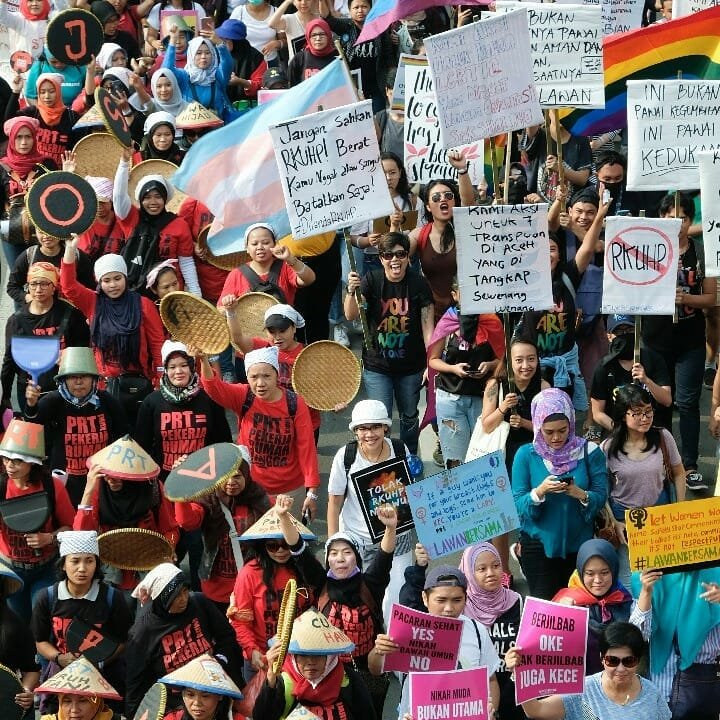Over a thousand people joined the Women’s March in more than a dozen Indonesian cities calling for justice and protection of women’s rights. The simultaneous marches took place on March 3, 2018, a few days before International Women’s Day on March 8.
The Women's March has eight demands addressed to the national government:
Abolition of discriminatory laws and policies that perpetuate gender violence
Pass laws and policies that protect women, children, indigenous people, people with disabilities and gender minority groups from discrimination and sexual violence
More accessible justice and rehabilitation for gender violence victims
Stop the state and society's intrusion against a person's body and sexuality
Abolition of stigma and discriminations against a person's gender, sexuality, and health status
Abolition of the practice of violence in courts, schools, and workplaces
Ending economic and financial depravation against women especially those working in factories, transwomen, sex workers and domestic workers.
A more proactive society in abolishing unfair practices and culture of violence existing in various institutions
Among the issues raised in the rallies was the approved amendments to the Indonesian criminal code (RKHUP) which would criminalize criticism of members of the House of Representatives (DPR). Participants also denounced the passage of legislative measures that outlaw adultery as well as the sharing of information about contraception and sexual education.
Indonesia has a Muslim-majority population and boasts the promotion of a moderate view of Islam that celebrates a diversity of beliefs to build a harmonious society. However, in recent years, hardline clerics have been pushing for the strict interpretation of Islamic teachings and their application in many aspects of governance.
Indonesia’s Women’s March was first organized in 2017, conceptualized to mobilize people from all walks of life to defeat patriarchy's influence on all aspects of society. Participants cited the persistence of feudal concepts like the old Javanese thinking that women are only good for “macak, masak, manak” (looking attractive for her husband, cooking for her family, and bearing children).
Marchers called for unity and public support for women’s rights while using the hashtag #LawanBersama (#FightTogether) on social media